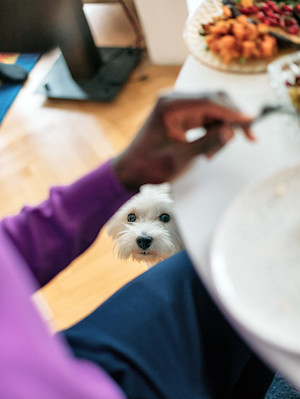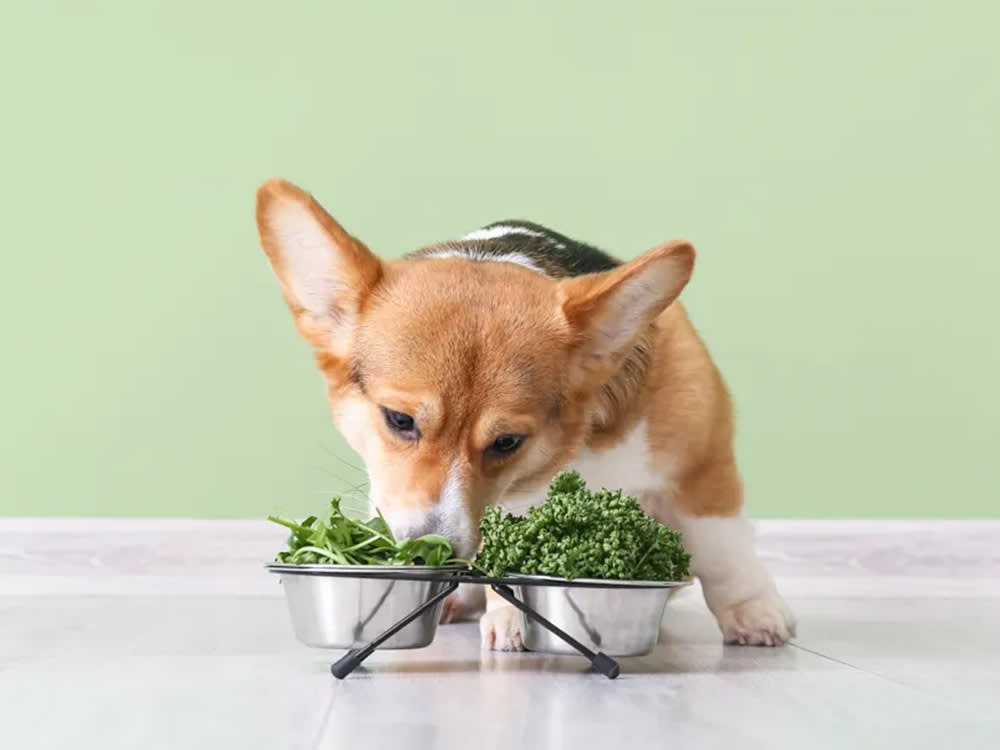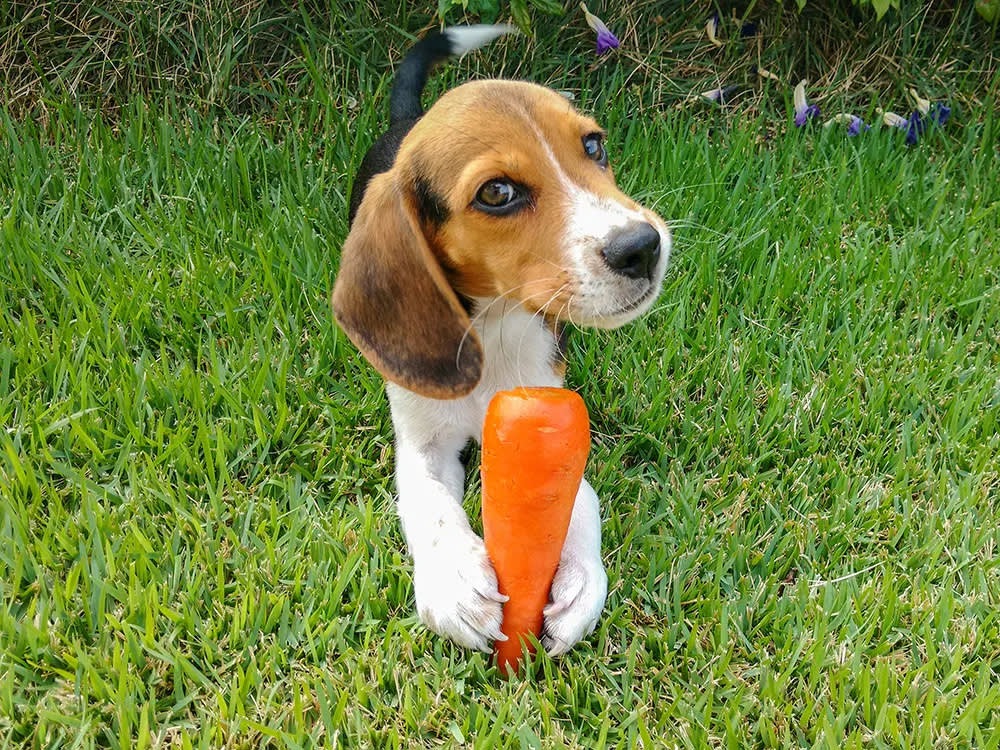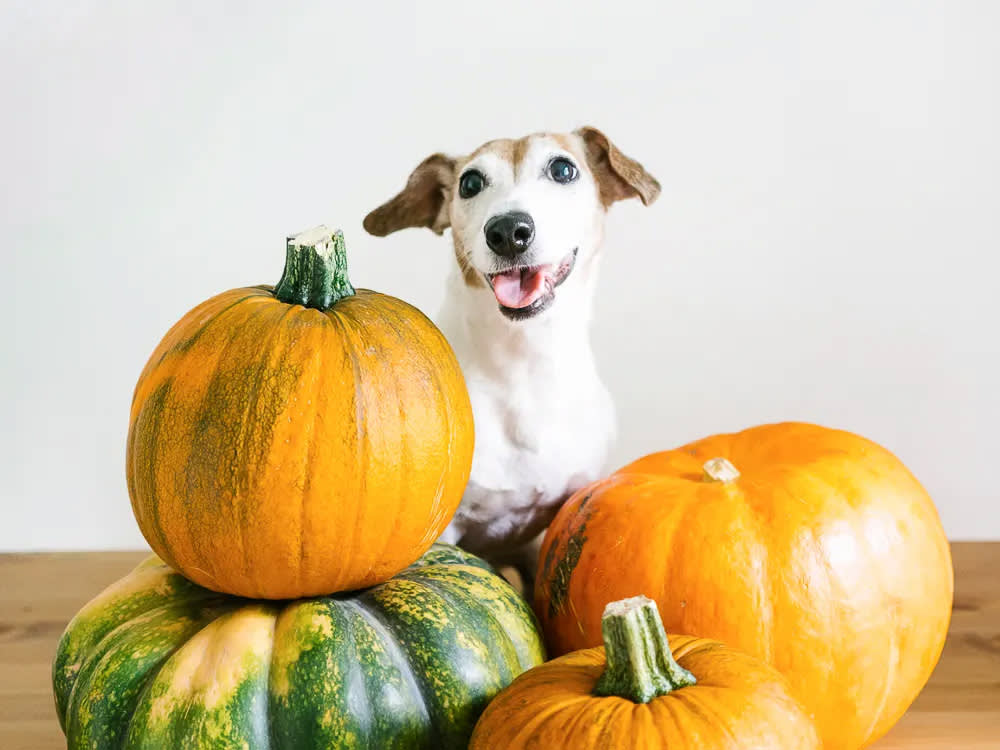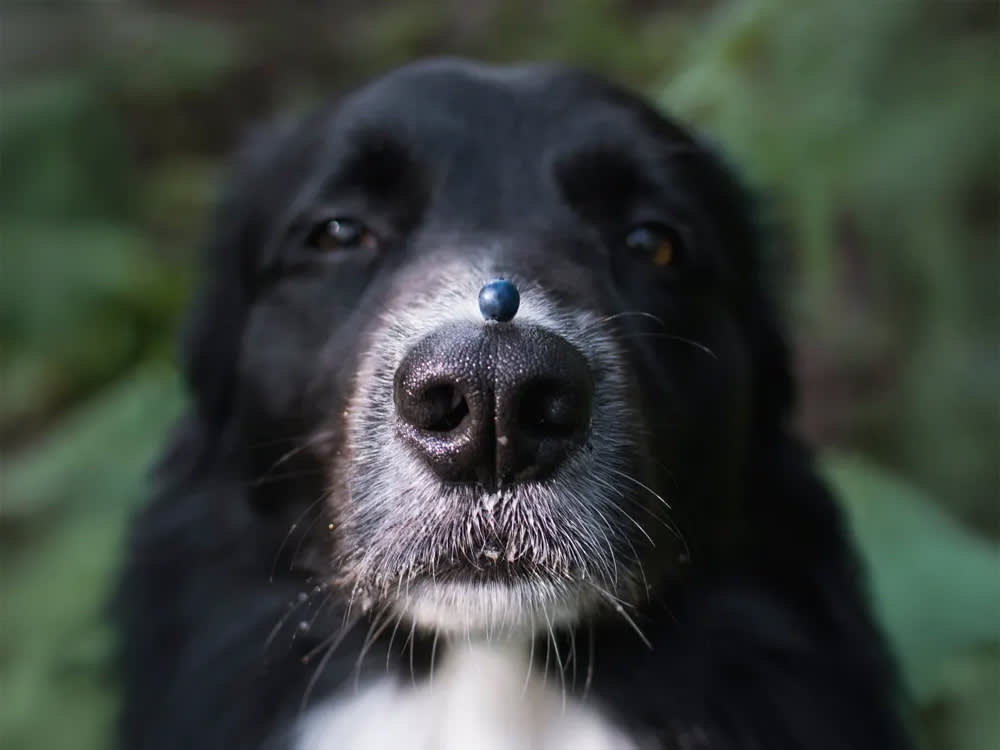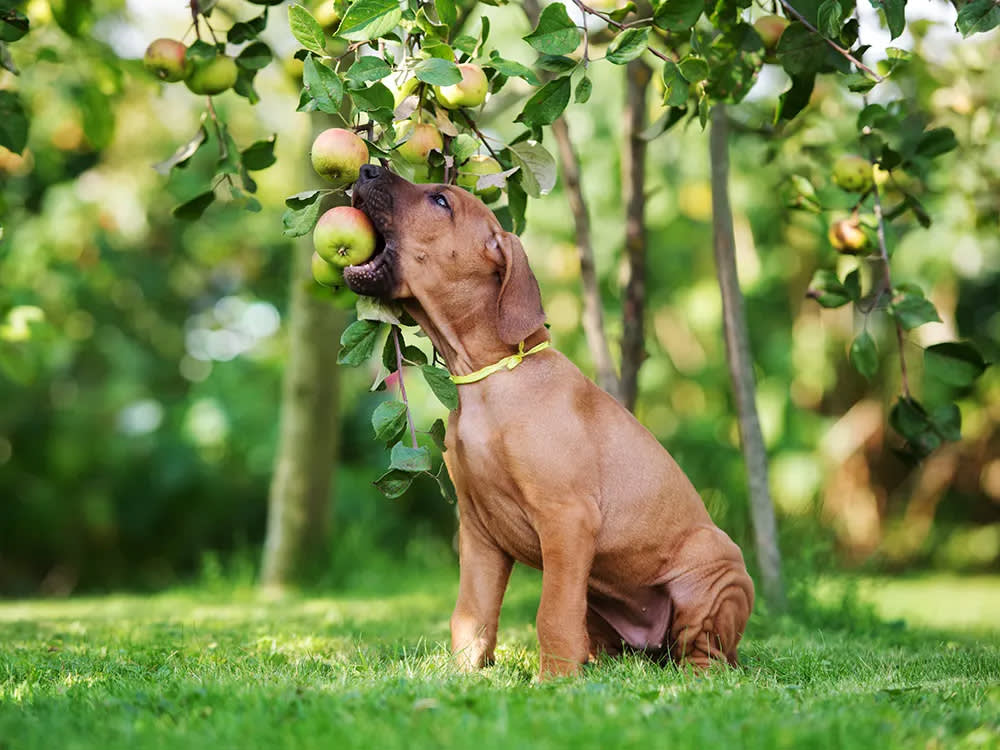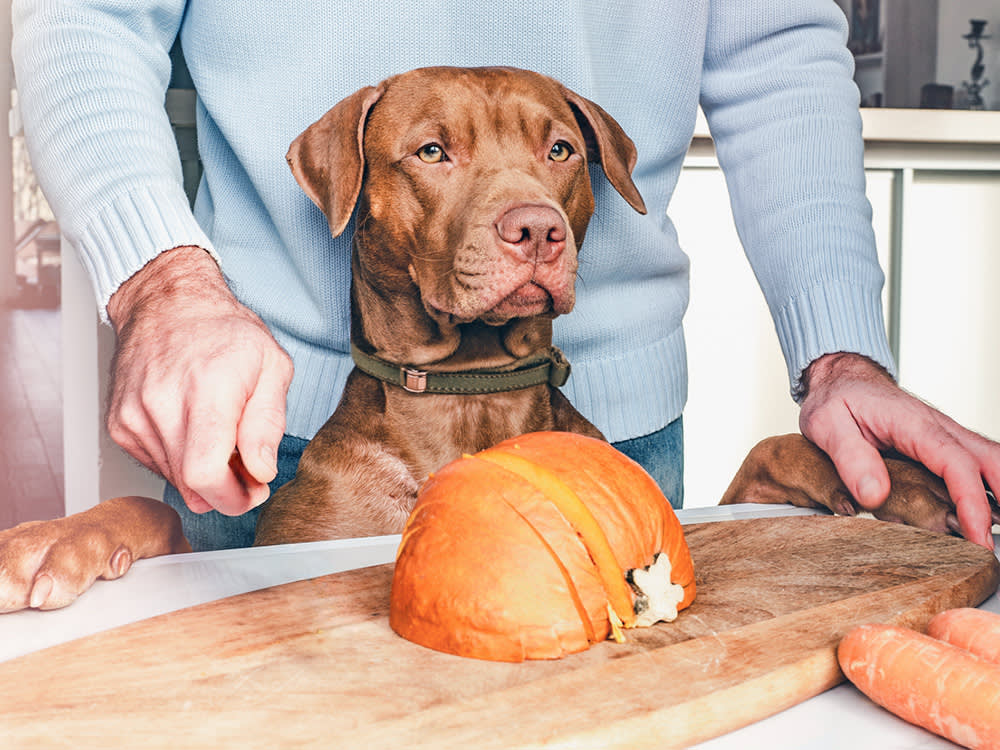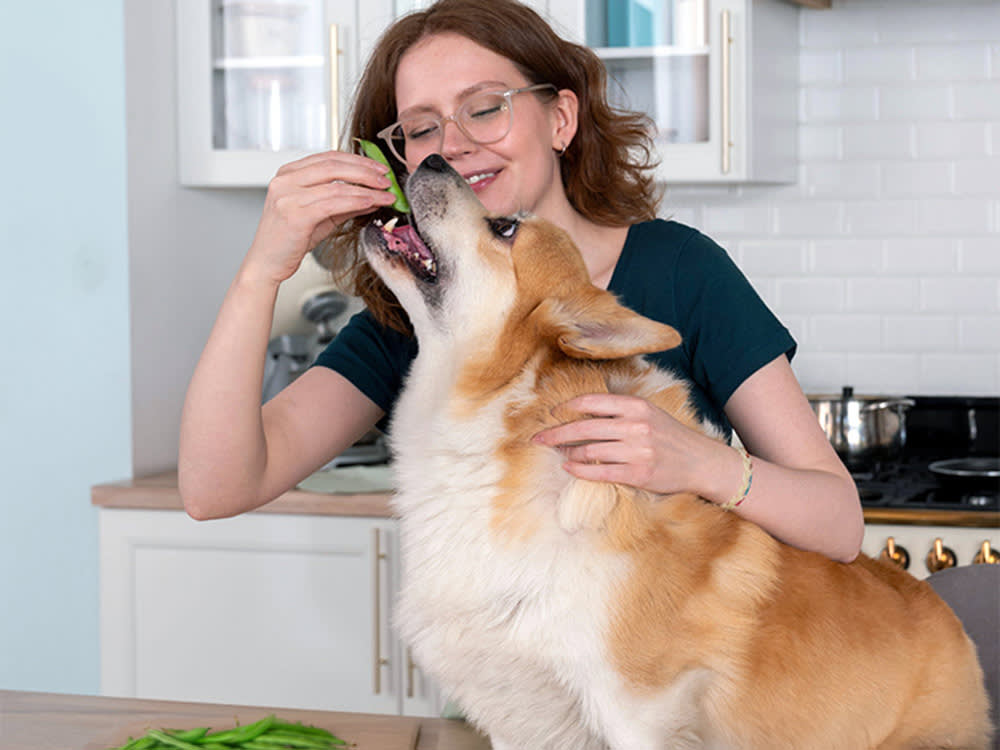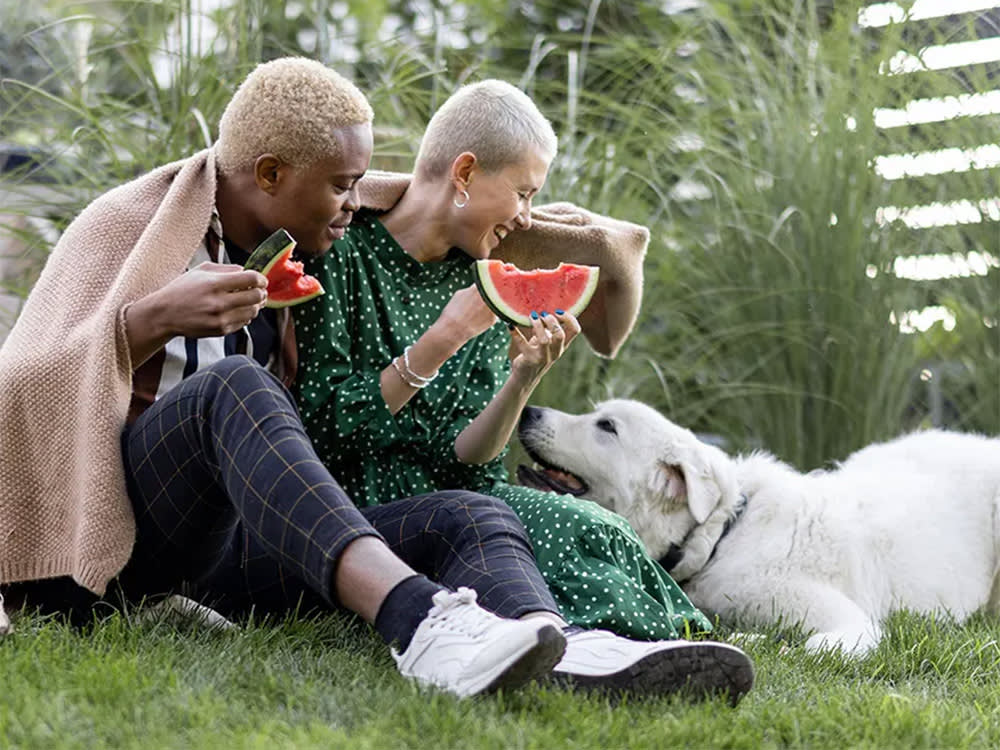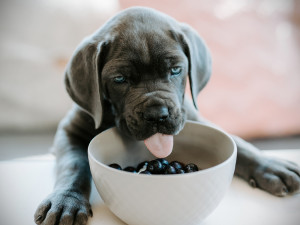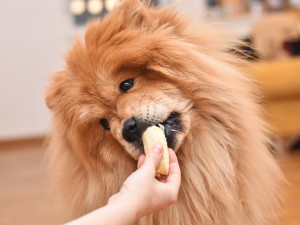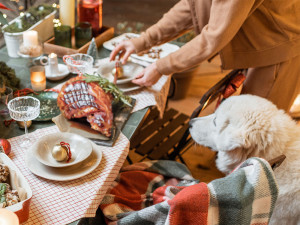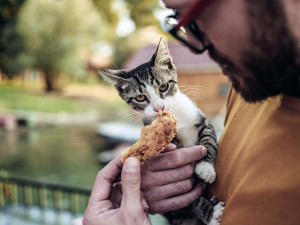8 Best Human Foods for Dogs
Delicious, nutritious, and safe? Sign them up.
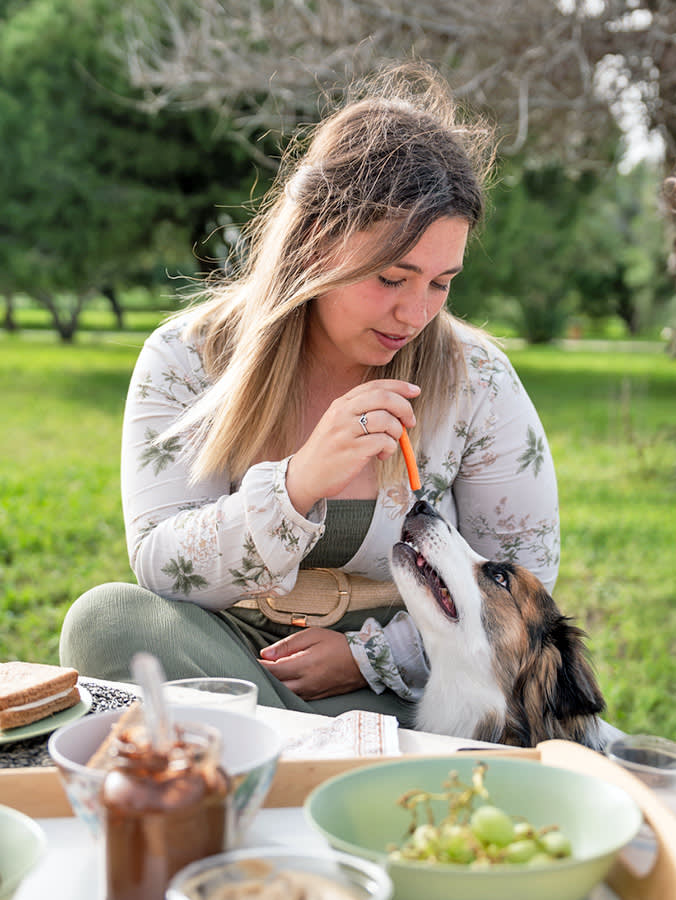
Share Article
When you’re eating, your dog probably tries to eat your food, too — that’s common. Sometimes, sharing your food with your pup can be dangerous, but some human foods can be safe for your dog to eat. This list includes plain cooked meats (such as chicken and turkey), vegetables (like carrots, pumpkin, green beans, and sweet potatoes), and fruits (like apples without seeds, blueberries, and watermelon). However, never feed dogs chocolate, grapes, raisins, onions, garlic, or anything containing xylitol.
Is it bad to feed human foods to dogs?
Feeding your dog human food isn’t always harmful if it’s done with care. Dogs have different metabolisms than humans, and some common human ingredients can be toxic to them. Even safe human food can be harmful to a dog if it has ingredients such as salt, butter, sugar, or spices.

Additionally, if you overfeed your dog human food, it can interfere with your dog’s regular diet, cause weight gain, or lead to behavioral issues, such as begging. It’s essential to maintain moderation and consistency. When introducing any new foods, do so slowly and in small amounts. Always consult your veterinarian if you’re unsure.
What human foods can dogs eat?
Below is a list of safe, nutritious human foods for dogs. Each food is explained with clear preparation tips and safety guidance.
1. Kale
Kale is a great food for dogs when fed in moderation. It promotes immune health and contains powerful antioxidants. It also provides vitamins A, C, and K, and calcium. Another benefit is detoxification and a reduction in inflammation.
Avoid feeding large quantities of kale so as not to risk bladder stones. Always serve plain, thoroughly washed, and chopped into bite-sized pieces.
How do you prepare kale for dogs?
Steam or lightly sauté kale with no added oil or seasoning. Let it cool and chop finely before serving.
Can dogs eat kale stems?
Only in small amounts. Chop or steam them thoroughly, as the stems can be difficult to digest.
Can dogs eat kale chips?
Only if you leave out the salt, garlic, onion powder, and oil. Store-bought kale chips often contain spices or preservatives that can be harmful to dogs.
2. Carrots
Carrots are an excellent crunchy treat for dogs. Rich in beta-carotene, fiber, vitamin A, and antioxidants, carrots offer benefits such as a healthy coat and eye health, and can even help clean teeth when served raw.
How do you prepare carrots for dogs?
There are a variety of ways to prepare carrots. You can serve them raw, cooked, or frozen. If cooking, don’t add seasoning.
Can dogs eat carrot tops?
Yes, the leafy green tops are safe in small amounts and contain antioxidants. Be sure and wash them well.
Are baby carrots safe for dogs?
Yes. They’re small, convenient, and easy to digest, which makes them ideal for training treats.
3. Pumpkin
Pumpkin is a superfood for dogs. It promotes digestive health and is a great way to eliminate diarrhea or constipation. It contains fiber, potassium, and vitamin A. Always use plain canned pumpkin or fresh, cooked pumpkin.
Avoid pumpkin pie filling or spiced versions that contain sugar or nutmeg.
How do you prepare pumpkin for dogs?
Serve plain canned pumpkin or bake fresh pumpkin. Once soft, then mash or cube. You can also spread it out over a lick mat and freeze the mat, which provides a great mental-stimulation activity for your hungry pup.
Can dogs eat pumpkin seeds?
Yes, if roasted and unsalted. Pumpkin seeds provide a crunchy source of antioxidants and omega-3 fatty acids, which are very good for your dog’s coat.
Is canned pumpkin or fresh better for dogs?
Both are safe. Be sure the canned pumpkin is 100 percent pure, with no added ingredients.
4. Blueberries
Blueberries a are safe, antioxidant-rich fruit for dogs. They have many benefits. They support brain health and immune function, helping to combat oxidative stress. They are also low in calories and high in fiber and vitamin C.
How do you prepare blueberries for dogs?
Rinse well and serve fresh or frozen. They can be given as a treat or in food.
Can dogs eat blueberry muffins?
No. They contain too much sugar, flour, and other additives.
How many blueberries can I give my dog?
For small dogs, a few at a time, and up to a small handful for larger breeds.
5. Apples (without seeds)
Apples are a fiber-rich fruit that dogs can enjoy in moderation. When giving them to your dog, be sure to remove the core and seeds, which contain cyanide and can be toxic to dogs.
Apples provide vitamin C and vitamin A and are great for freshening breath.
How do you prepare apples for dogs?
Slice into bite-sized chunks, remove the seeds and core and serve raw or mixed into food.
Can dogs eat apple skin?
Yes. The skin contains fiber, but wash the apple thoroughly.
Can dogs eat applesauce?
Only unsweetened, plain applesauce. Avoid versions with added sugar or spices.
6. Sweet Potatoes
Sweet potatoes are a great source of fiber, vitamins A, B6, and C, as well as potassium. They support digestive health and are excellent for dogs with sensitive stomachs. They're also naturally sweet and well-loved by most pups.
How do you prepare sweet potatoes for dogs?
Bake or boil until soft. Serve plain, with no salt, butter, or spices.
Can dogs eat sweet potato skin?
Yes, if well-washed and cooked. However, some dogs may have trouble digesting it.
Are sweet potato chews safe for dogs?
Yes, if they are homemade or purchased without additives. They should be dehydrated and free of preservatives.
7. Green Beans
Green beans are a safe, low-calorie vegetable rich in fiber, iron, calcium, and vitamins A, C, and K. Because of their low- calorie content, they are great for weight control, and dogs really enjoy them.
How do you prepare green beans for dogs?
Steam, boil, or serve raw. Avoid canned varieties, due to the added salt or preservatives.
Can dogs eat canned green beans?
Only low-sodium, no-added-salt versions. Rinse before serving.
Can green beans help dogs lose weight?
Yes. Many vets recommend green beans as part of a calorie-controlled, weight-management plan.
8. Watermelon
Watermelon is a hydrating fruit that’s safe in moderation. It contains vitamins A, B6, and C, as well as plenty of water, great for hot days. Remove the seeds and rind before offering to avoid intestinal upset.
How do you prepare watermelon for dogs?
Cut into small cubes, remove seeds and rind. Serve chilled for a fun summer treat.
Can dogs eat watermelon seeds?
No. Seeds can cause blockages, especially in small dogs.
Is watermelon rind safe for dogs?
No. Just like seeds, the rind is difficult to digest and may cause gastrointestinal issues.
Bottom line
Some human foods are safe for dogs, while others are toxic. It’s critical to know which ones can harm your dog. The most important approach is to avoid spices, and additives and offer small bites of new treats, allowing you to monitor for reactions.
Safe foods include kale, pumpkin, carrots, and sweet potatoes. Always keep your dog away from toxins, such as chocolate, grapes, onions, and xylitol. Many others can be harmful. Do your research, and when in doubt, consult with your veterinarian.
References
Falconer, Amanda. “Would My Dog or Cat Benefit from Spirulina?”opens in new tab Bestie Health, 18 Nov. 2021, Accessed 17 June 2025.
“How to Support Your Dog’s Gut during and after a Course of Antibiotics - Guides | Big Dog Pet Foods.” opens in new tabBigdogpetfoods.com, 2024, Accessed 17 June 2025.
McClements, David Julian. “Nutraceuticals: Superfoods or Superfads?”opens in new tab Future Foods, 1 Jan. 2019, pp. 167–201.

Dr. Shelby Neely, DVM
Dr. Shelby Neely is a freelance writer and veterinarian who graduated from the University of Pennsylvania School of Veterinary Medicine and has practiced veterinary medicine for 30 years, specializing in small animals. Her work has appeared in Allivet, AsktheCatDoctor, WhiskerDocs, Ask the Cat Doctor Radio, Ask the Cat Doctor TV, and numerous other websites, brochures, newsletters, newspapers, and ebooks. In her spare time, Dr. Neely likes to spend time with her three children, two grandchildren, three cats, two grand-cats, and five grand-dogs.
Related articles
![A person giving a banana to a dog.]()
10 Fruits and Vegetables That Your Dog Can Feast On
Indulge your pup (safely) with these delicious and healthy snacks.
Can Dogs Have Ham?
That might be what you’re having for dinner, but read here to see if your dog can partake.
![Man feeding small white and gray cat a chicken wing.]()
Can Cats Eat Raw Chicken?
Careful — cooked chicken is way safer for your kitty.
Can Dogs Have Bell Peppers?
Yes, but there are a few ground rules you should know.
Can Dogs Eat Pistachios? Find Out if They Are Toxic
It’s not exactly an easy answer.
Can Dogs Eat Zucchini? How to Feed This Veggie to Your Pup
What should know before adding this food to your pup’s diet.

